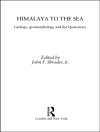Flooding is the natural hazard with the greatest economic and social impact in the United States, and these impacts are becoming more severe over time. Catastrophic flooding from recent hurricanes, including Superstorm Sandy in New York (2012) and Hurricane Harvey in Houston (2017), caused billions of dollars in property damage, adversely affected millions of people, and damaged the economic well-being of major metropolitan areas. Flooding takes a heavy toll even in years without a named storm or event. Major freshwater flood events from 2004 to 2014 cost an average of $9 billion in direct damage and 71 lives annually. These figures do not include the cumulative costs of frequent, small floods, which can be similar to those of infrequent extreme floods.Framing the Challenge of Urban Flooding in the United States contributes to existing knowledge by examining real-world examples in specific metropolitan areas. This report identifies commonalities and variances among the case study metropolitan areas in terms of causes, adverse impacts, unexpected problems in recovery, or effective mitigation strategies, as well as key themes of urban flooding. It also relates, as appropriate, causes and actions of urban flooding to existing federal resources or policies.
Committee on Urban Flooding in the United States & Division on Earth and Life Studies
Framing the Challenge of Urban Flooding in the United States [EPUB ebook]
Framing the Challenge of Urban Flooding in the United States [EPUB ebook]
قم بشراء هذا الكتاب الإلكتروني واحصل على كتاب آخر مجانًا!
لغة الإنجليزية ● شكل EPUB ● صفحات 100 ● ISBN 9780309489645 ● الناشر National Academies Press ● نشرت 2019 ● للتحميل 3 مرات ● دقة EUR ● هوية شخصية 7145763 ● حماية النسخ Adobe DRM
يتطلب قارئ الكتاب الاليكتروني قادرة DRM












